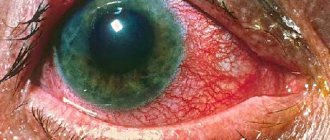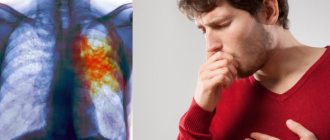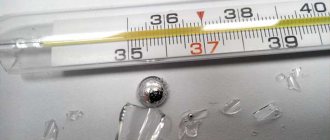Diarrhea (diarrhea) is one of the main reasons for adults to visit a doctor. Diarrhea refers to all cases of frequent (more than 3 times a day) bowel movements with the release of liquid, unformed feces. If symptoms last no more than 14 days, such diarrhea is considered acute, and malaise for more than 4 weeks is equivalent to chronic diarrhea. Every year in Russia, about 800 thousand cases of acute diarrhea due to intestinal infections are registered, and chronic diarrhea occurs on average in 7-14% of the adult population.
Causes of diarrhea
- bacterial and viral infections (acute intestinal infections - AII), parasitic infestations. Acute respiratory infections are second only to acute respiratory infections (ARVI) in prevalence;
- enzyme deficiency: absolute - occurs, for example, with diseases of the pancreas, intolerance to milk sugar - lactose, and relative - with an excess of indigestible foods in the diet (food rich in plant fiber and fats), overeating;
- chronic diseases of the gastrointestinal tract (chronic colitis, enteritis, Crohn's disease, etc.) - when its mucous membrane is damaged, the absorption of nutrients is impaired;
- violations of the quantitative and qualitative composition of the intestinal microflora (dysbacteriosis);
- surgical pathology (appendicitis, polyps, intestinal tumors);
- nervous overstrain, emotional stress (“bear disease”);
- vitamin deficiency (deficiency of vitamin B2, niacin, etc.);
- side effects of certain medications (sorbitol, magnesium preparations, antacids, some antihypertensive drugs, antibiotics, antidepressants, non-steroidal anti-inflammatory drugs, etc.), overdose of laxatives.
It is difficult to find a person who has never suffered from diarrhea in his life - such a problem happens to each of us more than once. Perhaps that is why they often treat it lightly, letting things take their course and not seeking medical help in a timely manner. Meanwhile, “banal diarrhea” can be a manifestation of very serious, sometimes life-threatening diseases. If diarrhea develops, you need to remember the main alarming symptoms that require immediate medical attention:
- the appearance of mucus and blood in the stool;
- stool has a tar-like color and consistency (sometimes accompanied by vomit that resembles coffee grounds);
- passing copious watery stools more often than 15-20 times a day;
- copious light-colored stools against the background of a drop in body temperature below normal;
- combination of diarrhea and high fever;
- a combination of diarrhea, abdominal pain and severe vomiting;
- diarrhea lasts more than three days, despite prescribed treatment;
- diarrhea is accompanied by disturbances of consciousness;
- diarrhea for more than 2 days in an elderly person or a child under one year old;
- diarrhea appears periodically for no apparent reason, accompanied by weight loss and weakness.
If you have detected at least one of the listed symptoms, there is no need to hesitate. But this does not mean that in other cases seeking medical help is not necessary. Particularly serious consequences of diarrhea
may occur in old age and childhood, due to the particularly rapid onset of dehydration.
Diarrhea has a variety of not only causes, but also manifestations. First of all, this concerns the appearance of excreted feces: their consistency, color, visible impurities. This is very important for diagnosis. Let's look at the most common options.
When to call an ambulance
Diarrhea can be severe or be the first sign of serious gastroenterological or surgical pathology. To avoid complications, the patient is advised to seek emergency care.
Signs of deterioration:
● repeated vomiting that does not bring relief
● frequent and copious stools, accompanied by dehydration
● an increase in temperature over 39°C and no effect from standard antipyretic tablets
● the appearance of blood or pus in the stool
● impaired consciousness
Watery diarrhea (“water diarrhea”)
Its causes can be both bacterial and viral infections. The most severe of them, of course, is cholera, but salmonellosis and acute intestinal infections of viral etiology are much more common. The small intestine is affected by pathogen toxins, this is accompanied by the release of large amounts of water and salts dissolved in it into the intestinal lumen (stool may resemble “rice water”), without adequate replenishment of electrolytes, fatal dehydration can occur. Requires hospitalization in a specialized hospital (intestinal infections department).
Self-diagnosis and treatment are unacceptable. Diarrhea due to intestinal infections may not always be accompanied by nausea, vomiting, abdominal pain and fever (in weakened patients, as well as in the terminal stages of cholera, body temperature may drop below normal); treatment directly depends on the type of causative agent of the disease, which is impossible to determine at home.
Treatment of loose stools: how to get rid of the problem
If frequent loose stools bother you for a long time, then most likely its causes lie in a serious imbalance and require immediate treatment. Unlike one-time diarrhea, systematic diarrhea implies complex treatment, which includes not only eliminating symptoms, but also addressing the underlying causes of the syndrome.
Infectious diarrhea
Treatment depends on the form of infectious diarrhea. In mild cases, home therapy is quite possible, including diet, drinking plenty of fluids and taking adsorbent drugs. A severe form of gastroenteric diarrhea requires hospitalization with a whole range of emergency procedures and restorative therapy, which consists of restoring the lost fluid balance and following a diet.
Functional diarrhea
Occurs in disorders of the digestive or nervous system. There are no organic changes in the gastrointestinal tract, and therefore the main treatment in this case is symptomatic. If it is possible to remove the causes of a nervous disorder or irritable bowel, then loose stools may go away within one or two days5.
Black diarrhea
The most serious reason that can cause black loose stools is esophageal, gastric or intestinal bleeding (for example, varicose veins of the esophagus, gastric or duodenal ulcers, tumors). When blood comes into contact with digestive enzymes, it turns black. Tar-like stool indicates fairly heavy bleeding. If it is localized in the stomach, sometimes coffee-ground vomiting occurs. Critical blood loss can occur quite quickly - the patient must be taken to a surgical hospital as soon as possible. Sometimes blackening of the stool is caused by taking certain medications (activated carbon, iron, bismuth, vitamin-mineral complexes).
White diarrhea
Often occurs in children under one year of age. In this case, it can be caused by feeding with certain artificial formulas, overfeeding with milk, introducing new foods into complementary foods, an excess of hard-to-digest carbohydrates, and is sometimes observed during teething.
More serious causes of white diarrhea, which can occur in both children and adults: disorders of the gallbladder (partial or complete obstruction of the biliary tract), hepatitis (jaundice).
Whitening of the stool can be caused by medications that interfere with liver function (tetracycline, aspirin, ibuprofen, paracetamol, methotrexate, oral contraceptives, anti-tuberculosis drugs).
The best remedy for diarrhea
An effective and cheap remedy for diarrhea is the most common garlic. In order to get rid of increased gas formation, diarrhea and bloating, it is enough to drink one clove of garlic with water in the morning on an empty stomach (without chewing). This must be done an hour before the first breakfast. Be sure to drink a glass of cold water. It is necessary to carry out a similar procedure for 10 days and the problem of diarrhea will be solved. Garlic has antiseptic and wound-healing properties, which makes it possible to use it to get rid of problems with the gastrointestinal tract.
There is no need to worry about bad breath. Garlic eaten this way does not produce an aroma that others can smell.
Possible complications of diarrhea
- dehydration (even death): this is indirectly evidenced by such signs as dry lips, tongue, decreased turgor of the skin and eyeballs, severe thirst, rapid breathing, and rare urination;
- loss of salts by the body (occurs in combination with loss of fluid) can cause convulsions;
- exhaustion of the body, hypovitaminosis (with chronic diarrhea);
- intoxication (poisoning with bacterial or viral toxins);
- hemorrhoids, rectal prolapse, ulcerations and fissures.
Why is diarrhea dangerous for adults?
Acute diarrhea in adults is dangerous because it can become chronic. In this case, loose stool haunts a person every day for a month or more. This significantly affects a person’s overall well-being, performance, immunity and, of course, quality of life. In this case, you need to consult a doctor and undergo a comprehensive examination and treatment. Find out the cause of diarrhea and eliminate it!
Diarrhea is also dangerous due to the development of complications such as: - Dehydration. - Heart rhythm disturbances, convulsions, muscle pain. — Cachexia is a state of extreme exhaustion of the body.
Treatment
For treatment of diarrhea, it is best to turn to professionals, since diarrhea can have many causes, and the approaches to treating each of them are fundamentally different.
If, due to special circumstances (for example, being in a hard-to-reach area), it is impossible to immediately receive medical help, the main treatment consists of replenishing fluid and salt losses, as well as reducing intoxication (if there is an infection). For this purpose, there are special salt mixtures (for example, rehydron, oralite), which are diluted with water according to the instructions and constantly taken orally in small portions, in small sips. To reduce intoxication, sorbents (activated carbon, etc.) are used, which do not allow microbial toxins to be absorbed.
You should be especially careful with drugs that slow down intestinal motility, since delayed excretion of infected stool leads to increased intoxication. It should also not be done without identifying the causes of diarrhea
take antibiotics.
All of the above measures can be regarded only as temporary, and at the first opportunity, in any case, it is necessary to seek medical help in order to clarify the diagnosis and adjust the treatment of diarrhea.
So, for example, if the cause lies in infection, the doctor, after conducting tests, will select a suitable antimicrobial agent. In case of dysbacteriosis, which can be both a cause and a consequence of diarrhea, it is advisable to take special medications that restore normal microflora. Enzyme deficiency may require taking enzyme medications.
Diet for diarrhea
Diet is one of the components of treatment. Since with any diarrhea there is irritation (and often severe inflammation) of the intestinal mucosa, food should be as gentle and easily digestible as possible. For diarrhea it is recommended:
- drink more (drinks at room temperature, warm), the preferred drinks are simple drinking water, water-salt mixtures, warm tea, weak jelly, astringent and enveloping herbal teas and infusions. Alcohol, milk, fruit juices, carbonated drinks should be avoided;
- do not eat if you have no appetite (this is a protective reaction of the body);
- When you have an appetite, you can start with secondary broths, oatmeal or rice porridge (in water), dried white bread, mashed potatoes, boiled lean meat (a little, pureed). Then you can try boiled and baked vegetables and fruits. Food should be semi-liquid, homogeneous, it should be taken often and little by little;
- Until stool is completely normalized (and preferably for some time after), fresh fruits and vegetables, as well as alcohol, fatty, spicy and fried foods should be avoided.
How to cure diarrhea in an adult using folk methods
To normalize the processes of defecation, people can use “old-fashioned methods”:
- A decoction made from rice. This remedy is considered universal, as it helps to quickly and effectively consolidate stool, regardless of the cause of diarrhea. To prepare it, a person must boil water (0.5 l) in a saucepan with a thick bottom and then pour rice (1 tbsp), previously washed, into it. Boil the contents of the container for 30 minutes, until the water becomes cloudy. After this, the broth is cooled and filtered. You need to use this drug 2-3 times a day, 100 ml.
- Pomegranate peels. You should first wash and dry the peel of one pomegranate. After this, it must be crushed and placed in a deep bowl. Next, the powder is poured with boiling water (2 tbsp.). The contents of the container should be infused for 60 minutes. After filtration, the liquid should be consumed up to 4 times a day, 1 tbsp. l. You need to take the drug until bowel movements normalize.
- Bird cherry fruits. Place a handful of berries in an enamel saucepan and pour boiling water over them (2 tbsp.). The container is moved to the stove so that its contents simmer over low heat for 30 minutes. After cooling, the broth is filtered and consumed up to 3 times a day, 0.5 tbsp.
- Oak peels, which contain substances that can destroy pathogenic microflora. The raw materials should first be crushed, after which the powder substance should be placed in a deep bowl (5 tbsp.) and pour boiling water (3 tbsp.). The container is placed on the stove and its contents should be boiled over low heat for 15 minutes. After filtration, the decoction must be consumed before each meal, 2 tbsp. l.
- You can drink a cup of strong black tea and eat a few rusks or crackers.
- Pour warm boiled water into a half-liter glass jar and add a small amount of potassium permanganate. The light pink solution will help eliminate diarrhea and at the same time disinfect the intestines.
- A person can eat an apple every day that has been previously peeled. The fruit should be eaten every hour, and apart from it you should not eat or drink. This method of getting rid of diarrhea can be used by those people whose pathological condition is not accompanied by either dizziness or high fever.
- A person can drink a laxative and wash it down with freshly squeezed lemon juice (1 tbsp.). He will have a complete cleansing of the intestines, after which the diarrhea will stop.
- To normalize bowel movements, people can drink water to which a small amount of iodine has been added. This “old-fashioned” method will eliminate diarrhea in just a few hours. You need to add the following components to a glass of water: iodine (5 drops), salt (1 tsp), sugar (1 tbsp). After thorough dissolution, the solution should be drunk every 20 minutes, 3 tbsp. l. This recipe cannot be used by people who have pathologies with the thyroid gland.
- You can swallow a few black peppercorns. For adult patients, it will be enough to consume 10 peas. Children starting from 5 years old should be given no more than 3 pieces. It is recommended to carry out this procedure before a night's rest.
- In cases where diarrhea is a consequence of poisoning with toxic substances, patients should be given an enema. As a solution, you can use salted water, or “Regidron” prepared immediately before the manipulation. The procedure should be repeated several times in a row until clear liquid comes out of the intestines.









